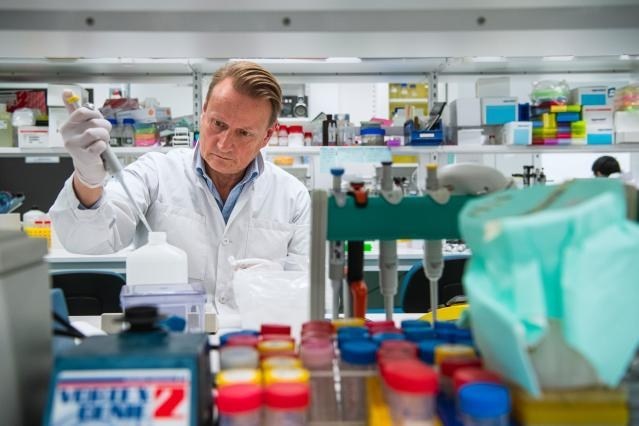The European Commission presented yesterday a common European strategy to buy vaccines against the coronavirus on behalf of all member states through advance purchase agreements with producers.
Four member states did not wait for the Commission to act and have already started the process.
Vaccine development is a complex and lengthy process. With the strategy, the Commission intends to support efforts to accelerate the development and availability of vaccines in a timeframe between 12 and 18 months, if not earlier.
The EU strategy for Covid-19 vaccines states that securing safe and effective vaccines is both a European and global challenge which affects all regions in the world. The spread of the virus has shown that no region is safe until the virus is under control everywhere.
In order to support companies in the swift development and production of a vaccine, the Commission will enter into agreements with individual vaccine producers on behalf of the member states in a centralised procurement process. By using its combined leverage and firepower of €2.4 billion from the Emergency Support Instrument, the Commission expects to achieve the most optimal conditions.
In return for the right to buy a specified number of vaccine doses in a given timeframe, the Commission will finance part of the upfront costs faced by vaccines producers. The allocation of the vaccines will be made according to member states’ population key. The purchase and use of the vaccines will remain in the hands of the member states as vaccination polices is a national competency.
“Working together will increase our chances of securing access to a safe and effective vaccine at the scale we need and as quickly as possible,” Stella Kyriakides, Commissioner for Health and Food Safety, said (17 June). “It will ensure fair and equitable access for all across the EU and globally, thus offering the best opportunity of finding a permanent exit strategy from the COVID-19 crisis.”
At a press conference last week, following a health committee meeting with the health ministers, she said that EU needs to show a united front and avoid competition between the member states to ensure a faster and cheaper process. “We received a political mandate and overwhelming support from the committee to go ahead with a common vaccines strategy.”
According to Kyriakides, the four member states (France, Germany, Italy, and the Netherlands), that have formed an “inclusive vaccines alliance” are on “the same side”. The alliance has reportedly already signed orders for millions of doses of a vaccine which is being developed by the British-Swedish pharmaceutical company AstraZeneca.
Kyriakides did not clarify whether the four member states will go ahead with their own purchase plans or rely on the Commission’s joint procurement of vaccines for all the EU. The EU vaccines strategy describes their vaccine alliance as an “important step towards joint action between member states” and the Commission initiative as an “scaling up” to cover the whole EU.
At today’s virtual press briefing, the chief spokesperson of the Commission replied to a question by The Brussels Times that the EU vaccines strategy and the vaccine alliance share the same objectives and complement each-other.
A single negotiation track of all 27 member states would allow the Commission to form a united position in the negotiations with the vaccine producers. Commissioner Kyriakides has already sent letters to all member states inviting them to agree on the practical modalities of the common EU approach laid down in the strategy.
According to the Commission, positive replies have been received from a majority of member states, including those who launched the vaccine alliance, and more countries are expected to follow.
In a first step, a steering board, with representatives of the Commission and of all interested member states, will be established. The board will then appoint a team to initiate negotiations with vaccine producers.
M. Apelblat
The Brussels Times

